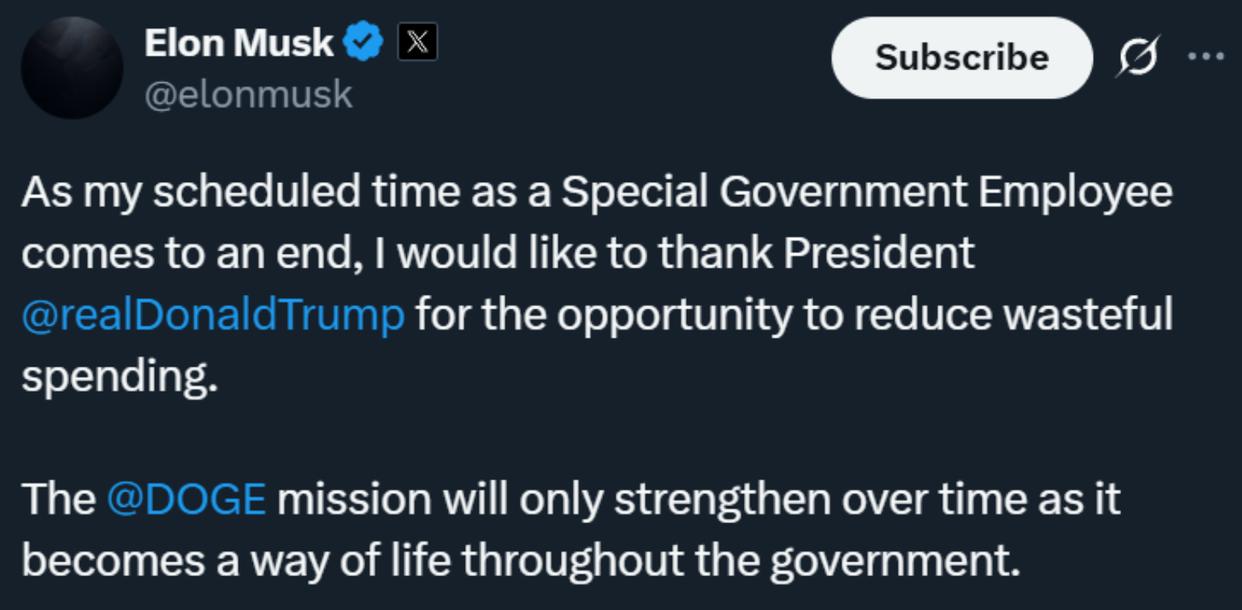
Trump’s tariff war has caused the price of Apple phones to rise to 15,000 yuan, and the prices of pistachios and soybean oil have all risen. Under the impact of the global supply chain, from technology lovers to foodies, everyone’s wallet is in pain. American consumers are hoarding Chinese TVs, and Chinese Apple fans are facing a bloodbath. No one can be immune to this game.
You can ignore politics, but it is difficult not to pay attention to your wallet. The global economic shock caused by Trump’s tariff combination this time has just begun. The global supply chain will be hit hard afterwards, which is a greater secondary disaster. From multinational giants like Apple to every ordinary person in the world, they will be victims of this tariff game.
Once the policy is implemented, everything from soybeans, cars to chips and medical devices will be affected. The pork on your table, the cooking oil for cooking, and even the pistachios and hazelnuts you usually eat may increase in price.
#01
After a fierce operation, the price of Apple phones has risen to 15,000 yuan
Broke down the global stock market is just the prelude to Trump’s tariff war. Once the policy is implemented, the global price system will also be messed up.
In order to save money, Apple CEO Cook has rushed to the forefront of global stockpiling. At the end of March, on the eve of Trump’s “reciprocal tariffs”, Apple sent 5 cargo planes full of iPhones and products from India to the United States in 3 days in exchange for a little respite.
China is the main production base of Apple components. An investment bank has calculated for Apple that it costs about $580 for Apple to make a mobile phone, including hardware, assembly and testing. Once Trump’s tariff 2.0 policy on China is implemented, the tax on these components packaged and exported from China to the United States will increase by more than $296.
In other words, the cost of each Apple mobile phone will increase by 50%. Multiplying by sales, Apple estimates that it will increase costs by about $8.5 billion each year. If all of it is passed on to consumers, the retail price of iPhone16 Pro Max in the United States will rise from the current $1,599 to $2,300.
According to foreign media reports, Americans who are worried about soaring prices have rushed into supermarkets and frantically snapped up Apple phones. If Apple adjusts its prices, the global price system will generally remain consistent. Therefore, the wallets of Chinese Apple fans are likely to be wiped out.
Mobile phones are just a small case. China’s manufacturing accounts for about 35% of the world’s total, and the goods exported to the United States are mainly electronic products, textiles and clothing, toys and children’s products, agricultural products, etc. From the perspective of American consumers, not only Apple mobile phones, but also cars, TVs, washing machines, towels, socks, and baby strollers will all increase in price.
Mark Cuban, a well-known American investor, called on American consumers to stock up on goods on social platforms a few days ago. According to him, from toothpaste to soap, buy them as soon as possible.
As the two largest economies in the world, Sino-US trade has always been interdependent. So, from the perspective of Chinese consumption, what goods need to be stockpiled?
Next, we try to find out some of the goods that are most affected based on the Sino-US economic and trade data in the past few years. For people such as technology control, foodies, beauty-loving ladies and mothers, we have sorted out a stockpiling guide.
#02
Cars and computers are causing pain in wallets around the world
Those who have suffered the most damage to their wallets are tech geeks.
According to data from the General Administration of Customs, China will import 1,164.06 billion yuan from the United States in 2024. Among them, mechanical and electronic products ranked first, with a total of 269.7 billion yuan, accounting for 23.17%. Among them, the largest ones are integrated circuits, engines and parts.
This means that after the countermeasures are officially implemented tomorrow, the import prices of chips and auto parts will rise.
Take mobile phones as an example. As long as they are domestic brands using Qualcomm chips, they may be under cost pressure. They may face two choices, either price adjustment or domestic substitution. At present, many domestic mobile phone brands are Qualcomm’s customers. Taking the Snapdragon 8sGen4 released by Qualcomm on April 2 as an example, mobile phone manufacturers such as Redmi, iQOO (vivo), Xiaomi, OPPO and Xingji Meizu are all on its first batch of equipment list. Consumers who want to buy high-end domestic flagship phones in the future may have to save money in advance.
In terms of laptops, Xiaomi Air 13, Huawei MateBook X Pro, RedmiBook Pro 14, Lenovo Xiaoxin Pro16, etc., all use Intel or AMD CPU processors. They will also face the dilemma of rising costs.
The prices of American imported cars such as Tesla, Chevrolet, Cadillac, Ford, etc. will obviously be affected. Take Tesla as an example. Its Model X and Model S are imported from the California factory in the United States, and some of the battery materials used are from Europe and the United States.
In addition to American cars, many German cars also have factories in the United States, such as Mercedes-Benz’s Alabama factory and BMW’s South Carolina factory. If China’s tariff countermeasures are implemented, the prices of their products will rise.
#03
Pistachios and soybean oil may increase in price
Stock up on some food for easier operation. Next is the time for foodies to compete with their hand speed.
In addition to mechanical and electronic products, agricultural and sideline products are the most imported goods from the United States by China. Last year, China spent a total of 190.1 billion yuan on the United States for this. Soybeans cost the most, 85.6 billion, accounting for 20% of the total import volume. Cotton cost 13.1 billion, 10 billion less than meat, but accounted for 45.14% of China’s total cotton imports last year. Next are sorghum, fruits, nuts, aquatic products, wheat, corn, etc.
In terms of soybeans, China began to shift from the United States to the Brazilian market as early as the first round of trade war seven years ago. But in the short term, a certain amount of American soybeans is still needed. In the upstream and downstream of the industrial chain, soybeans will affect the prices of edible oil, soy sauce and soybean meal feed. In other words, the cost of raising pigs for pig companies will increase, and soybean oil and soy sauce may also increase in price, so they can stock up appropriately.
The price of pork is not only affected by soybeans. my country is the world’s largest pork producer and the largest pork consumer, consuming more than 57 million tons a year, accounting for about 45% of the global total. Among them, 4% of pork needs to rely on imports, and American pigs are the bulk of them.
Customs data show that my country will import 2.284 million tons of pork in 2024, of which 408,000 tons will be imported from the United States, accounting for 17.9% of the total import volume. At present, including the policy of increasing tariffs on imported pork from the United States in March, China’s cumulative tariffs on American pork have reached 44% so far this year. It can be foreseen that the number of American pork imports will drop sharply in 2025. Chinese consumers may have to eat domestic pigs.
Once the slaughter rate of large pig companies such as New Hope and Muyuan shares decreases, pork prices may rise. Foodies who love to chew ribs can also take action. In addition, in addition to pork, the stock prices of these pig companies can actually be appropriately stockpiled. Friends who pay attention to the stock market, if you are careful, you can find that although global stock markets have suffered heavy losses, grain and oil company Golden Dragon Fish, soy sauce company Haitian Flavor Industry, pig companies New Hope and Muyuan shares have risen in A shares.
When cotton prices rise, the first thing that everyone may think of is the rising cost of clothing. In addition, the supply chains of many footwear and clothing giants have spread all over the world. Trump’s tariff combination punch, which is almost indiscriminately attacking the whole world, may force brands like Nike to raise prices.
As for snacks such as pistachios, corn flakes, and macadamia nuts, it’s okay to buy some in advance. It is very likely that macadamia nuts will soon be unavailable.
#04
Beautiful ladies are also victims of Trump
Foundations and lipsticks from the United States will also make beautiful ladies feel painful.
According to data from the General Administration of Customs of China, the import value of beauty products in China in 2023 was US$14.427 billion, of which the import value from the United States ranked fourth, exceeding US$1.5 billion. Although this figure was declining last year, Estee Lauder, MAC, and Bobbi Brown are still popular brands among Chinese women. Starting tomorrow, these products will be taxed.
As for mothers, they will also be very depressed. At present, in terms of overseas shopping and purchasing agents, taking American health products and maternal and child products as an example, the customs clearance time has been significantly extended, and taxes and fees have surged by 20%-30%, which has directly led to a surge in purchasing agents’ costs. Many small and medium-sized purchasing agents have been forced to turn their businesses to the European market.
In addition, data from March showed that the energy and chemical industries were also not spared. The import of shale oil and natural gas in the United States was restricted. Coupled with the instability of the situation in the Middle East, domestic gasoline prices have risen by 12% this year, and the cost of plastic products (such as daily necessities packaging) has risen by 10%-15%.
Even the United States is not having a good time. Global integration is an irreversible trend. Trump’s nonsense has not only harmed Chinese consumers, but also American people have fallen into a consumer panic.
Not only have consumers’ wallets been bloodbathed, but multinational giants have also suffered heavy losses. Take Apple as an example. In just three days, its market value evaporated by more than 630 billion US dollars, which is equivalent to the market value of 4 Xiaomi Groups. The global supply chain carefully built by Cook is also crumbling under the blow of the tariff war.
It is reported that American consumers are currently hoarding large items such as Chinese TVs, washing machines and South Korean Samsung mobile phones. As for the automobile industry, it has long become an industry that relies on the global supply chain. According to JPMorgan Chase’s estimates, after the automobile tariffs take effect, General Motors in the United States will pay up to $13 billion in import tariffs each year, and Ford will have to pay about $4.5 billion in import tariffs.
This tariff war, which claims to “make America great again”, is making ordinary people around the world pay the bill.










